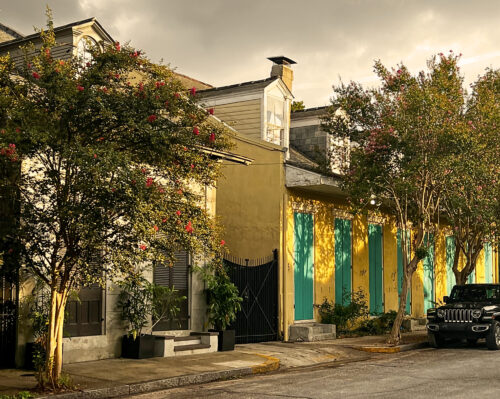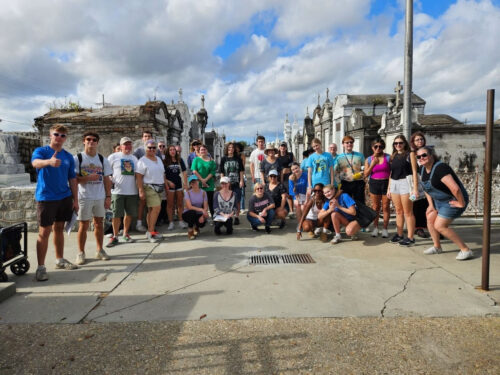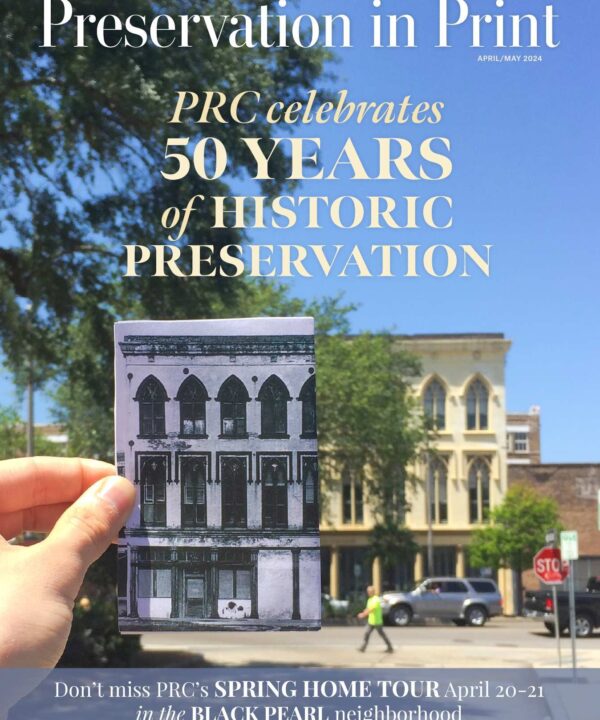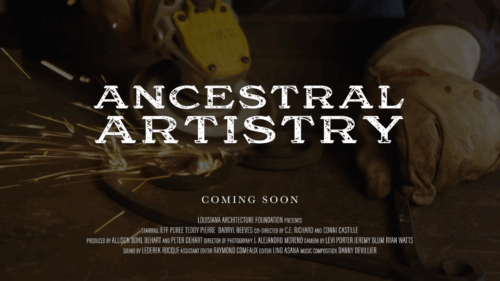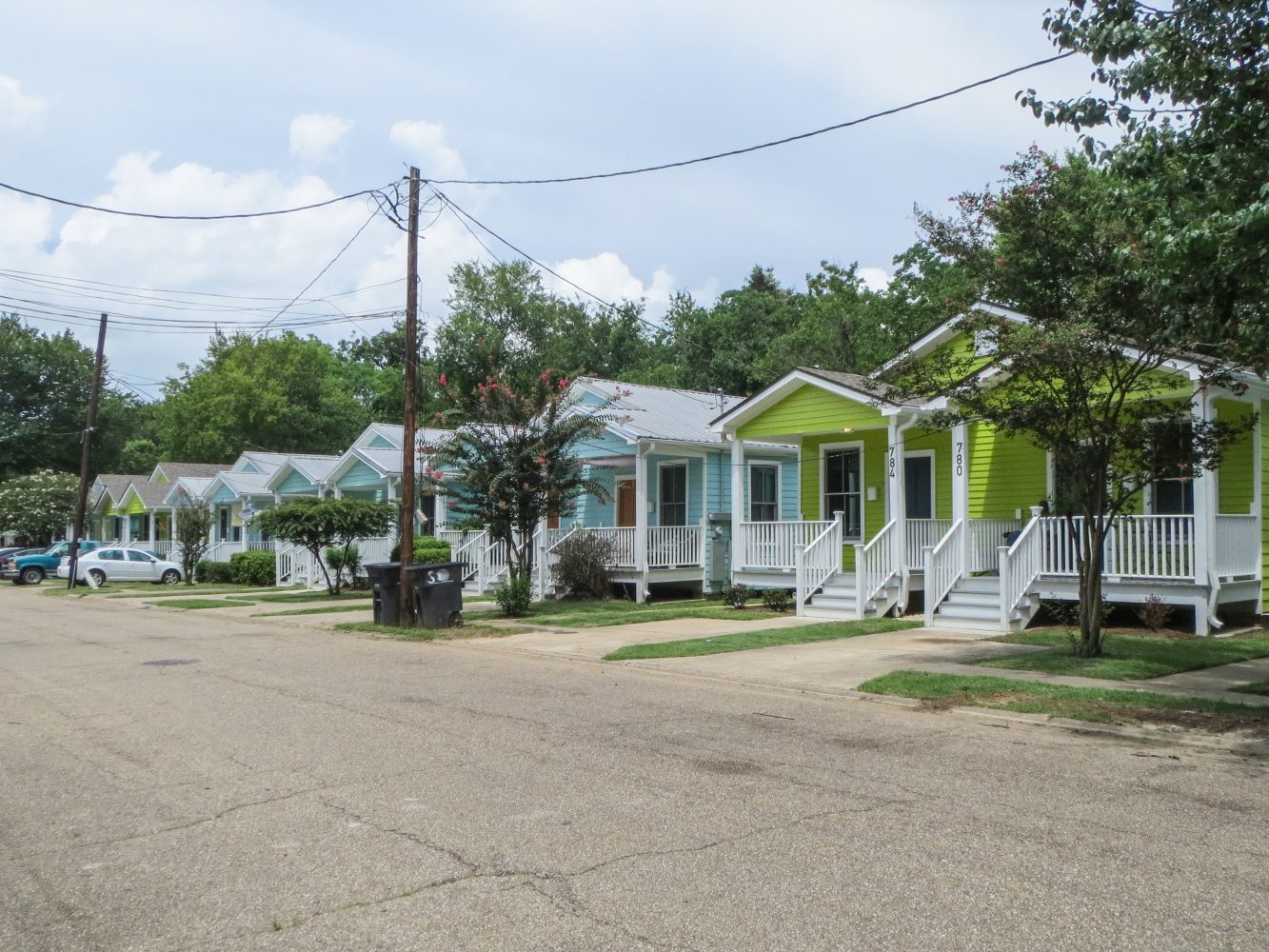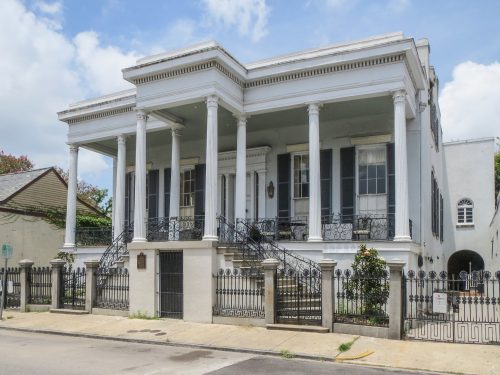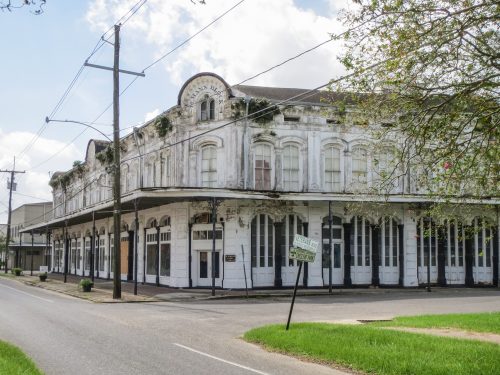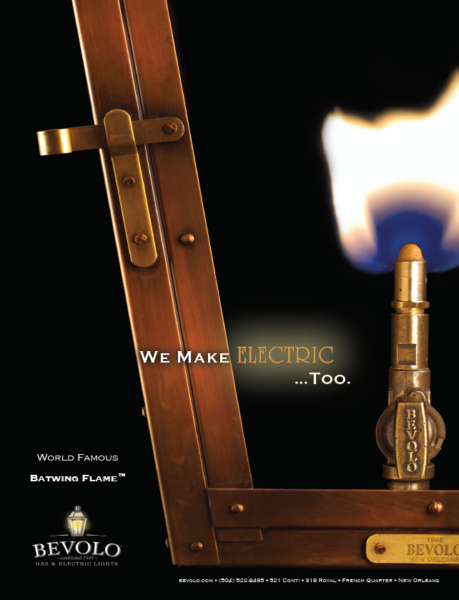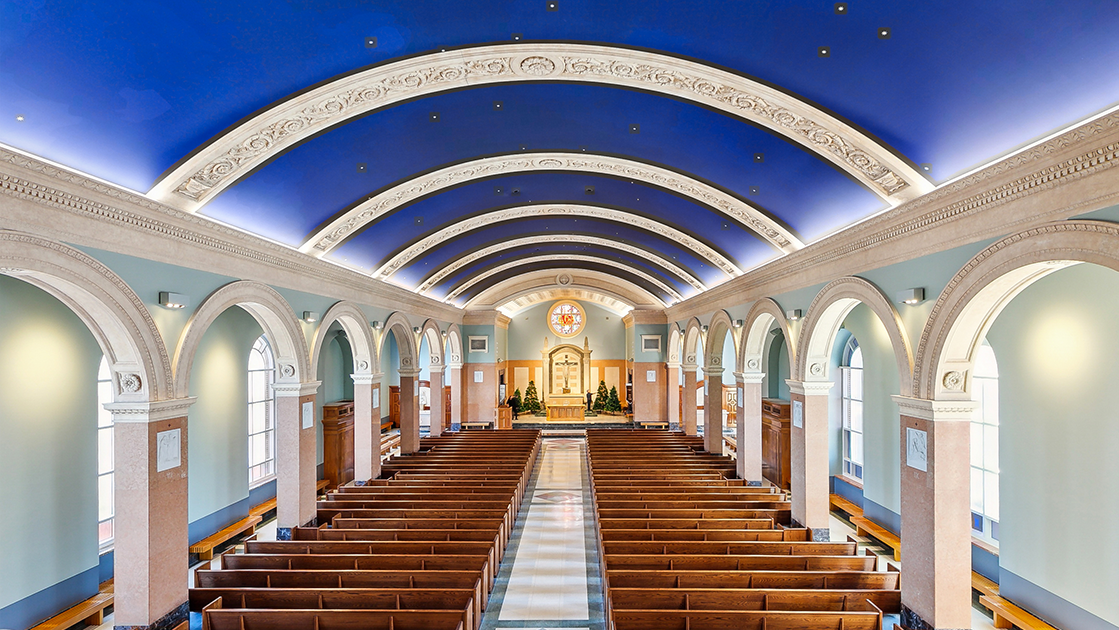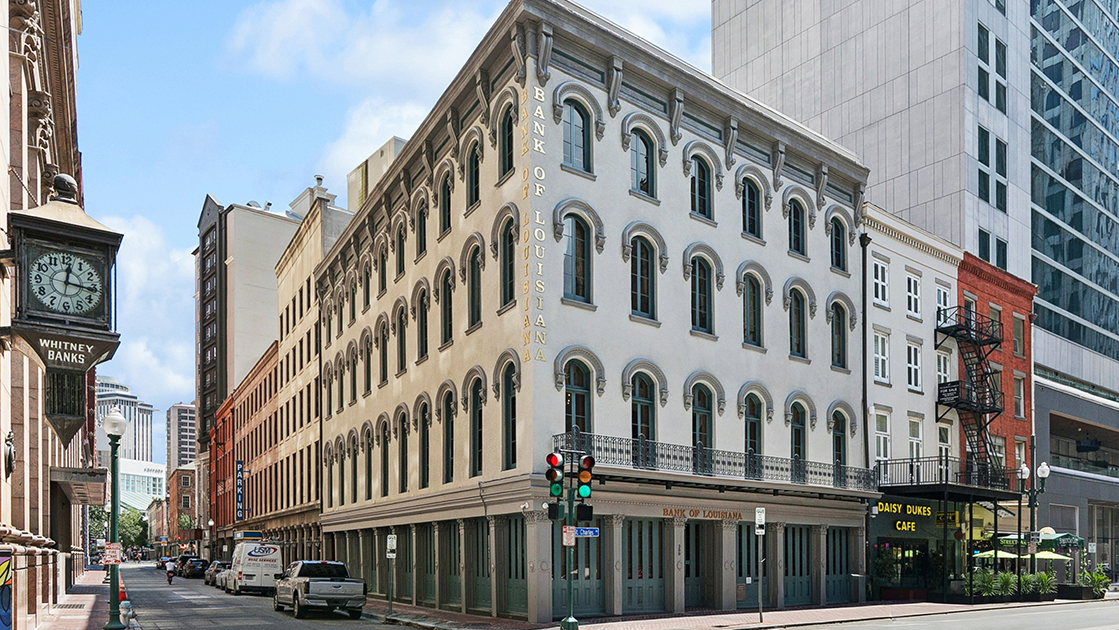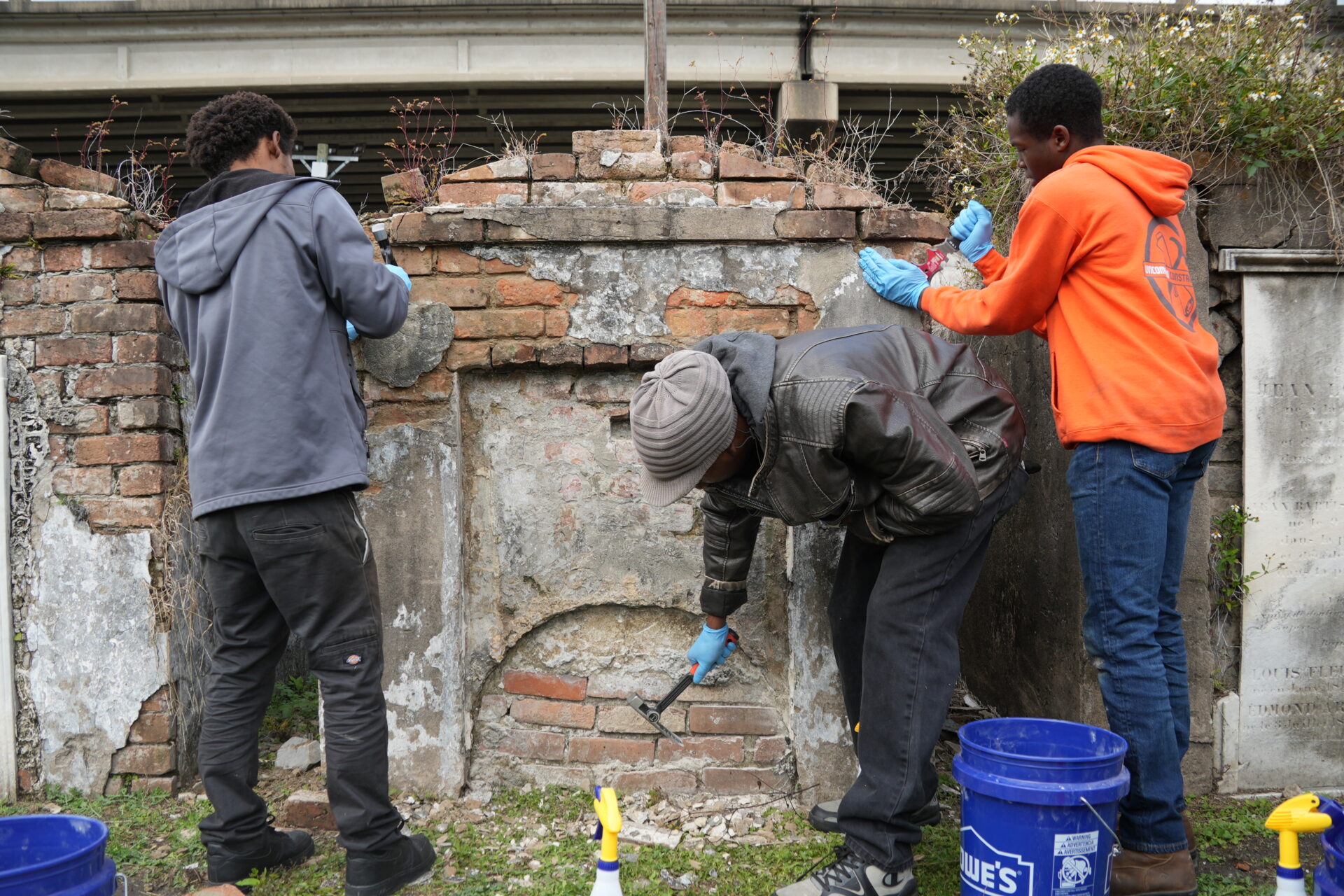This story appeared in the September issue of PRC’s Preservation in Print magazine. Interested in getting more preservation stories like this delivered to your door nine times a year? Become a member of the PRC for a subscription!
On July 13, Governor John Bel Edwards signed House Bill 4, now Act 25, of the 2020 First Extraordinary Legislative Session, extending the sunset date of Louisiana’s State Commercial Tax Credit Program for the rehabilitation of historic buildings. The new law ensures the duration of the popular program for five more years, through Dec. 31, 2025.
Louisiana leads the nation when it comes to utilizing historic tax credits for the rehabilitation of historic buildings, and a huge part of our success can be accredited to our State Commercial Tax Credit Program. This program allows eligible rehabilitation projects to recoup up to 20 percent of their qualified expenses in valuable tax credits when the project is completed and certified to meet program standards. Easily combined with the 20 percent Federal Historic Rehabilitation Tax Credit, the Louisiana State Commercial Tax Credit is an important tool used by investors to renovate historic buildings and place them back into commerce.
This extension gives applicants the time needed to develop and secure funding for new projects, as well as make necessary adjustments to timelines for projects already in progress that have suffered unforeseen delays due to COVID-19 shutdowns.
In addition to extending the sunset date for the program through Dec. 31, 2025, Act 25, authored by Rep. Tanner McGee of Houma, also introduced a statewide cap on credits to be issued. Effective Jan. 1, 2021, the State Commercial Tax Credit will be limited to $125 million in credits per calendar year, statewide. This cap does not affect projects that were previously approved and are in the construction phase. It will only apply to Part 2 applications that are submitted on or after Jan. 1, 2021.
My department, which administers the historic tax credit program, will work closely with the Louisiana Department of Revenue to create new program regulations. In addition, a series of constituent meetings will be held in the upcoming months to gather input from the construction, development and financial industries, ensuring that the cap will be implemented in the least disruptive way possible. There will also be a public comment period. Updates about the public comment period will be posted on the Louisiana Division of Historic Preservation website and social media accounts.
Advertisement
There is no doubt that the State Commercial Tax Credit Program makes historic buildings attractive as investment options. Since its introduction in 2002, the program has leveraged more than $4.4 billion in private investments in Louisiana’s historic downtown properties and has led to over 1,330 completed projects. While the statistics are certainly impressive, it’s the catalytic rejuvenation of historic downtowns and neighborhoods throughout the state as a result of the rehabilitation of historic buildings that is truly immeasurable. Extension of the State Commercial Tax Credit ensures that this revitalization will continue.
In Baton Rouge, a pre-1950 development of 24 duplexes is being rehabilitated under the tax credit program. The homes were constructed around a playground built in Progress Park during the late 1940s to serve residents of the neighborhood known as Easy Town. After years of unsympathetic renovations, the buildings were in danger of losing their historic integrity. The original wood cladding had been covered with vinyl siding, and wood windows had been replaced with vinyl windows. With their extensive experience in historic rehabilitation tax credit projects, the Gulf Coast Housing Partnership (GCHP) team was eager to tackle the daunting job of restoring this historic development to its once idyllic appearance. After undertaking selective demolition, they discovered that a significant amount of historic materials remained.
With this exhilarating find, the GCHP team was energized to restore most of the historic wood siding, restore the window openings to their historic size, and reintroduce wood windows similar to those that were originally there. Now, streets are lined with beautifully restored historic duplexes overlooking a community park. Kathy Laborde, chief executive officer of the Gulf Coast Housing Partnership, said, “Louisiana’s State Commercial Tax Credit Program is a valuable tool. Not only does it result in capital for our ventures, the renovated historic properties are so visually appealing that their transformative impact can jumpstart further neighborhood revitalization.”
Similar to the Progress Park duplexes, the Xiques House (circa 1852) in New Orleans’ historic French Quarter suffered from extensive past renovations at the hands of previous owners. Though originally constructed as a fine single-family home, throughout the years it has operated as a gambling house, cigar factory, boarding house, bottling factory and even served a short stint as the Spanish Consulate. Sometime between 1930 and 1956, the distinctive arched entries and wood-paneled doors in the elevated basement along Dauphine Street were reconfigured and infilled with metal gates. The restoration of the character-defining arched openings and replicating the historic wood-paneled doors are two of the goals of the current owner. Without the State Commercial Tax Credit Program’s financial incentive and the sunset extension, the costly restoration of the mansion’s historic features would likely have been impossible.
1: The Xiques House in the French Quarter was built circa 1852. 2: The Lemann Store in downtown Donaldsonville was individually listed on the National Register of Historic Places in 1982 and spans a city block. Photos by the Louisiana Division of Historic Preservation.
Extension of the tax credit program also allows projects that are still in the planning stage to have much needed time. Some historic rehabilitation projects can span up to five years for construction alone, not including time needed to plan and secure funding. Plans for rehabilitating the Lemann Store in downtown Donaldsonville are in the works by Jamie Neville with Neville Development and Kevin Kelly with Houmas House Estates. The historic store building and its additions have been certified as eligible for both the federal and state tax credit programs by the National Park Service and Louisiana Division of Historic Preservation, respectively.
Extension of the state tax credit program’s sunset date will afford developers the necessary time to finalize their plans, secure financing and move through the construction process.
Rehabilitating important buildings such as the Lemann Store within smaller communities is often a tricky feat, especially if the properties have been vacant for years and require significant repairs. Often “white elephant” projects like this aren’t seen as an economically viable option for investors, but being able to take advantage of both the state and federal programs, investors are eligible to recoup up to 40 percent of their qualified rehabilitation expenses in the form of tax credits. As developers say time and again, the tax credit programs “make the numbers work” for potential redevelopment projects.
The State Commercial Tax Credit Program helps make historic preservation financially feasible, and allows abandoned and blighted properties to become catalysts for economic growth in our communities. Without the financial incentives provided by the program, the historic integrity of developments like the Progress Park duplexes would continue to be overlooked and undervalued; restoration of significant historic homes like the Xiques House might never be undertaken; and dreams of bringing downtown landmark buildings like the Lemann Store back into commerce would have little chance of becoming reality.
State Commercial Tax Credits help revitalize Louisiana’s historic built environment and provide the kind of forward momentum for our state’s economy, in terms of dollars invested and jobs created, that few other programs do. Thanks to the program’s recent extension, our state historic tax credits will continue to encourage investment in Louisiana’s rich history.
Billy Nungesser is the Lieutenant Governor of Louisiana and the commissioner of the Department of Culture, Recreation and Tourism.
Advertisements

